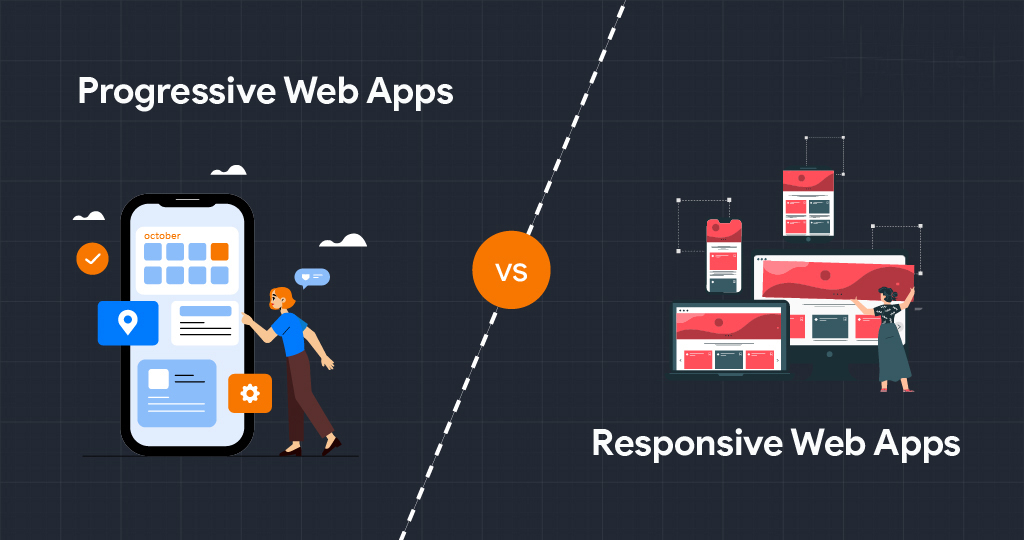
08 Dec, 2022
If your company is in the retail or e-commerce industries, you know how crucial a website is to its success. It displays your company's name, goods, and services to the public. Perhaps you've previously built a native application to boost the value of your brand. However, when you examine your application statistics, you could find fewer downloads than you anticipated. Or perhaps you notice users closing the application.
Consider that a decline in application downloads is having an impact on your revenue. If so, it could be time to leverage modern technology to simulate the experience of an application. Even so, it offers your clients a quicker, more adaptable, and more individualized experience. Let's examine the distinction between PWAs and conventional responsive websites so that you may better comprehend PWAs.
Traditional responsive web development uses a linked, monolithic design. This indicates that the complete tech stack (front and back end) uses the same resources as a single, coherent codebase. Although the word "cohesive" sounds positive, it has several disadvantages. One tiny modification in one place might have a big impact elsewhere in the system when your technology is connected and shares the same resources. While it might not happen right away, more development and integrations are required as your website gets more complicated to satisfy business objectives in order to handle greater traffic. The IT stack becomes rigid as a result, and significant adaptation, evolution, or change is resisted.
PWAs operate using a decoupled architecture, in which the resources used by the front end and the back end are kept separate. The two codebases converse instead, but each has a separate server instance. Through an API (application programming interface), backend apps provide data to the front-end website, which then provides it to the user. When it comes to making essential modifications to backend or frontend systems, a detached approach offers flexibility. For instance, it enables the scaling up, down, or removal of specific services and components without affecting the operation of the entire application. Decoupling will also allow developers to optimize their sections without running the risk of interfering with other components.
Headless vs. Traditional Commerce
Because they are built on APIs and offer the flexibility and speed necessary to expand a business in the fiercely competitive world of e-commerce, firms typically opt for the headless approach to PWAs. Teams may go from an all-inclusive solution to the best option for the needs of the organization using headless technology. Each system concentrates on a certain functionality and excels at it in comparison to other systems. Going headless with a PWA has the important advantage that any tool utilized in your e-commerce system may be hired, fired, or replaced without dispersing the full process.
On the other hand, you may get a PWA produced for your website and launch it for a mobile-optimized experience by establishing a PWA that is not headless. A non-headless PWA, however, has fewer customization options and prevents you from utilizing best-of-breed solutions, forcing you to choose an all-in-one solution.
Web Workers vs. Service Workers
Web and service employees have one thing in common: they assist in offloading challenging duties and promote the effectiveness of an app. But the similarities stop there. A dedicated worker is another name for a web worker. This is because JavaScript performs these actions using many threads. Without a web worker, JavaScript can only process one thread at a time and cannot manage numerous tasks at once. Another drawback of web workers is that they are frequently utilized to handle difficult and laborious jobs.
A service worker, in contrast, employs JavaScript but operates in the background and continues to function even while the website is unavailable. Service workers assist with browser caching and the deployment of requested functions. Customers may now enjoy new experiences thanks to push notifications and offline blog articles, for instance, which load without the need for an internet connection. The service worker acts as a proxy between the network and the browser/cache, which is the most straightforward way to grasp the distinction between a web worker and a service worker.
Your website must offer the same experience offline as it does while utilizing a WiFi connection because the majority of customers use websites and applications offline. However, WiFi might occasionally be patchy or restricted, and frequently, customers' devices aren't even connected to the internet.
Even when a user doesn't have an internet connection, PWAs employ caching to speed up connections to your website. Returning customers may rapidly carry on browsing and making purchases by being immediately routed to their previous activity on the PWA.
Absolutely, responsive websites do save a user's visit in a cache, but the mechanism is different, and even with caching, a site may not function as well offline. Images and pages take a long time to load for users. Sometimes the absence of offline functionality prevents them from fully accessing the website. The absence of offline functionality may drive users away from your website and away forever.
Let's look at the advantages your clients get when you provide a PWA now that you have a basic understanding of the distinctions between PWAs and responsive websites.
1. Native experience
The same web technologies that power responsive websites also power PWAs. It functions more like a native app. Push notifications and an integrated user experience are features of a PWA. However, a responsive website is only capable of internal communication, which restricts visitor interaction.
2. Ease Of Access
PWAs offer an "app-like" experience with an icon on a user's home screen and work just like a responsive website but can be shared and installed by a link. This increases the likelihood of engagement by making a PWA simple for people to use and aids in keeping your brand in their thoughts.
3. Faster Services
Before the website loads, PWAs offer users text stylesheets, pictures, and other material that is cached. A PWA that is accessible reduces user wait times, aids companies in increasing engagement and retention rates, and benefits your brand and company.
4. Engaging Approach
PWA user interactions are independent of the browser or device being utilized. A PWA increases the likelihood of informing visitors about exclusive deals, promotions, and brand-new product introductions because it is not restricted by the user's method of access. You can sustain user interest and retention by using this capability.
5. Discoverable
Because of how they are made and how rapidly they load, PWAs operate entirely within the web browser and boost your Google results. Additionally, you may continue to employ SEO to improve discoverability and rank well in search results, bringing in more people to your PWA.
Industry pioneer in web development and e-commerce and retail consultancy is Itgenix Softech Solutions. We provide PWA development in addition to conventional responsive websites. Furthermore, our Customer Success team supports you as you work through the difficult process of selecting the option that is ideal for your business and you. Itgenix Softech Solutions does away with the worry and agony of creating a platform to service your clients and boost conversions.
When you're ready to learn what a PWA can do for your company, get in touch with us. We'll walk you through your needs as a business and design a unique user experience for your visitors.

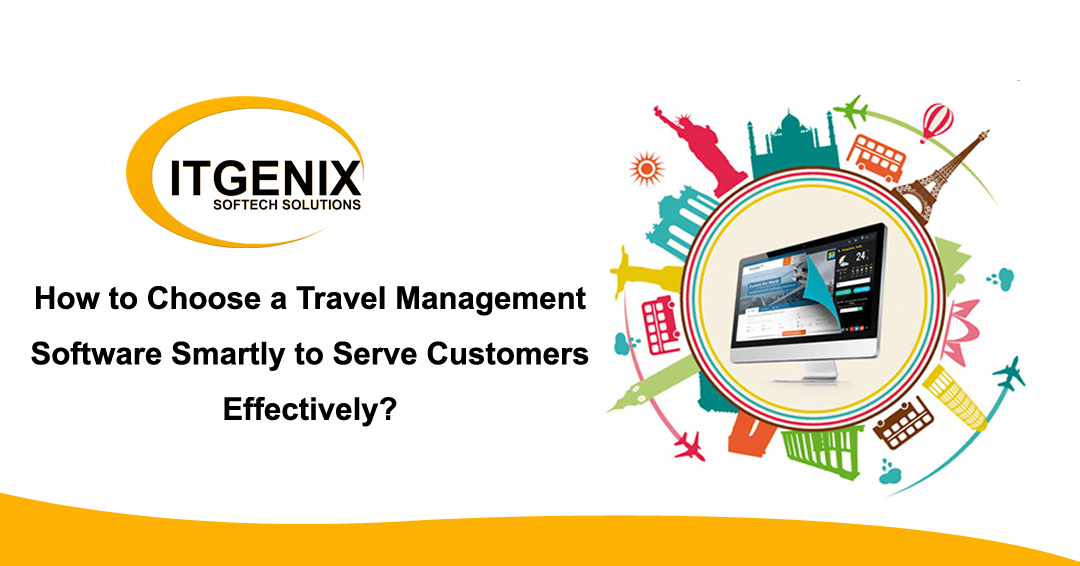





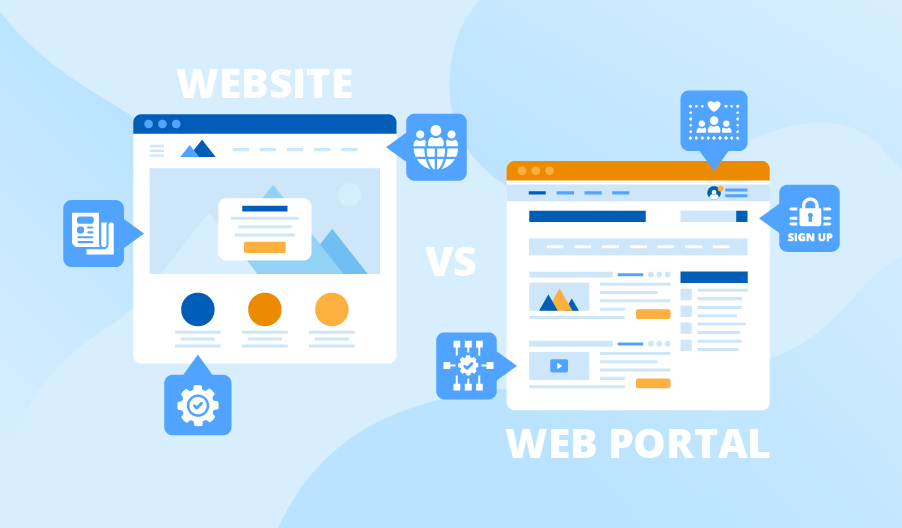









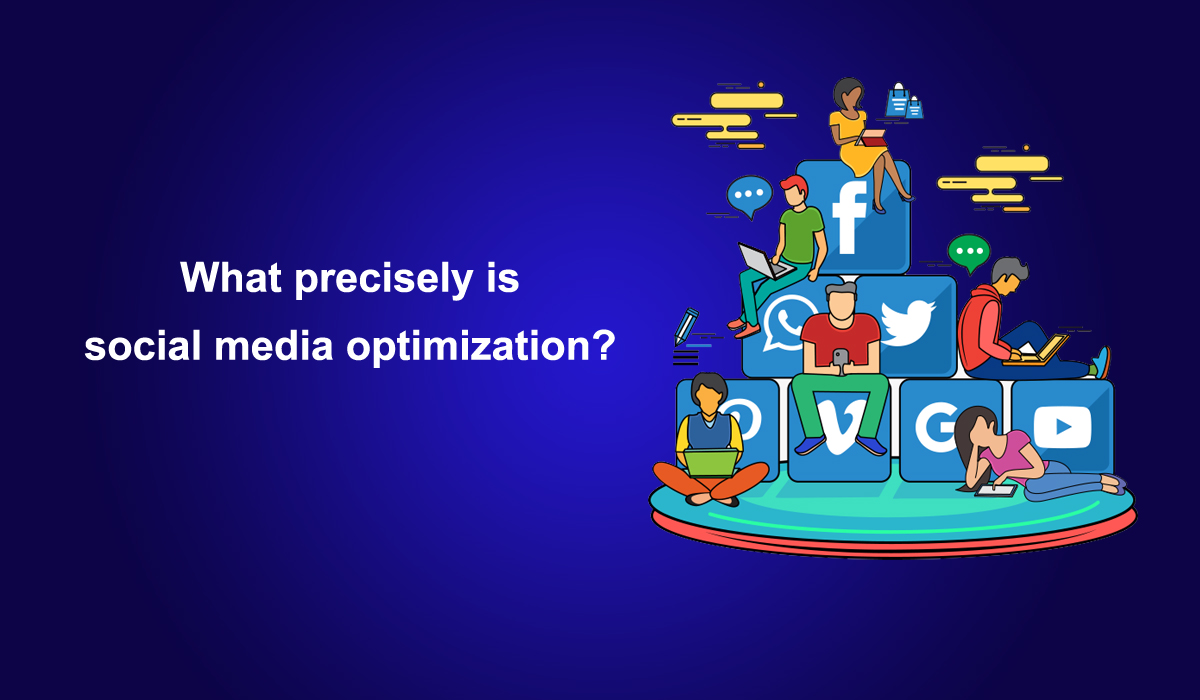


.png)

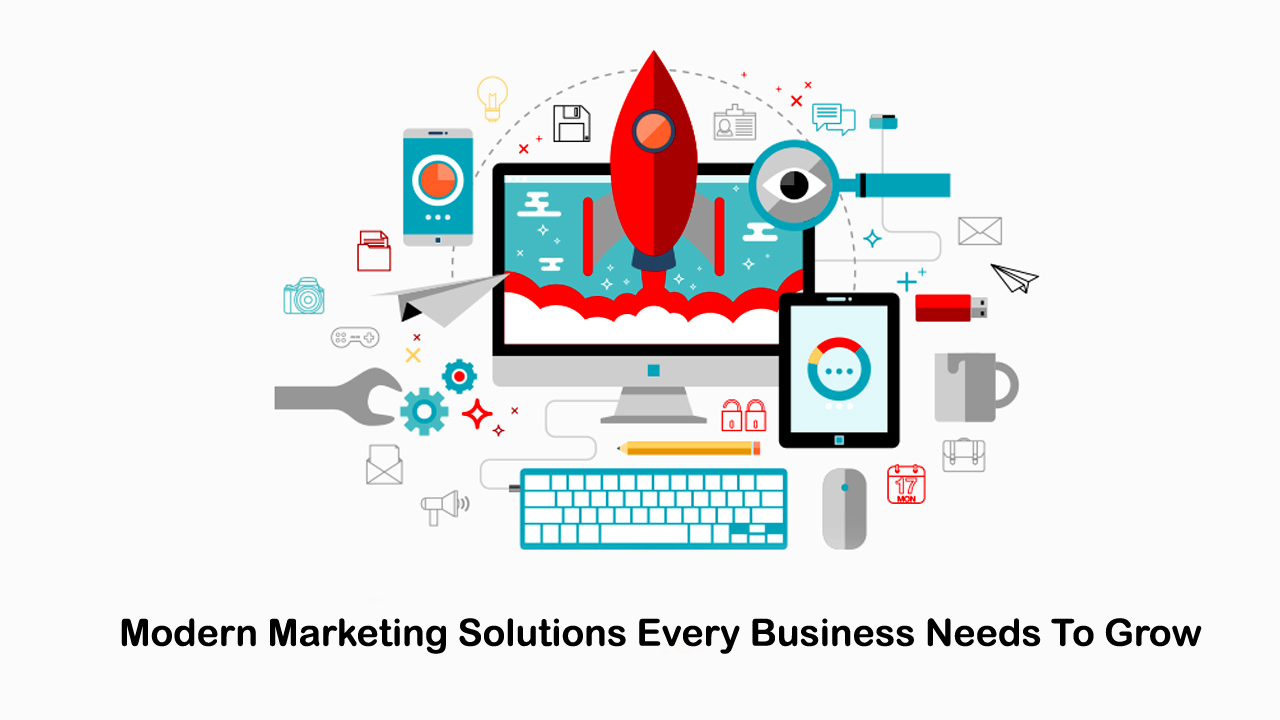

All right reserved by Itgenix Softech Solutions